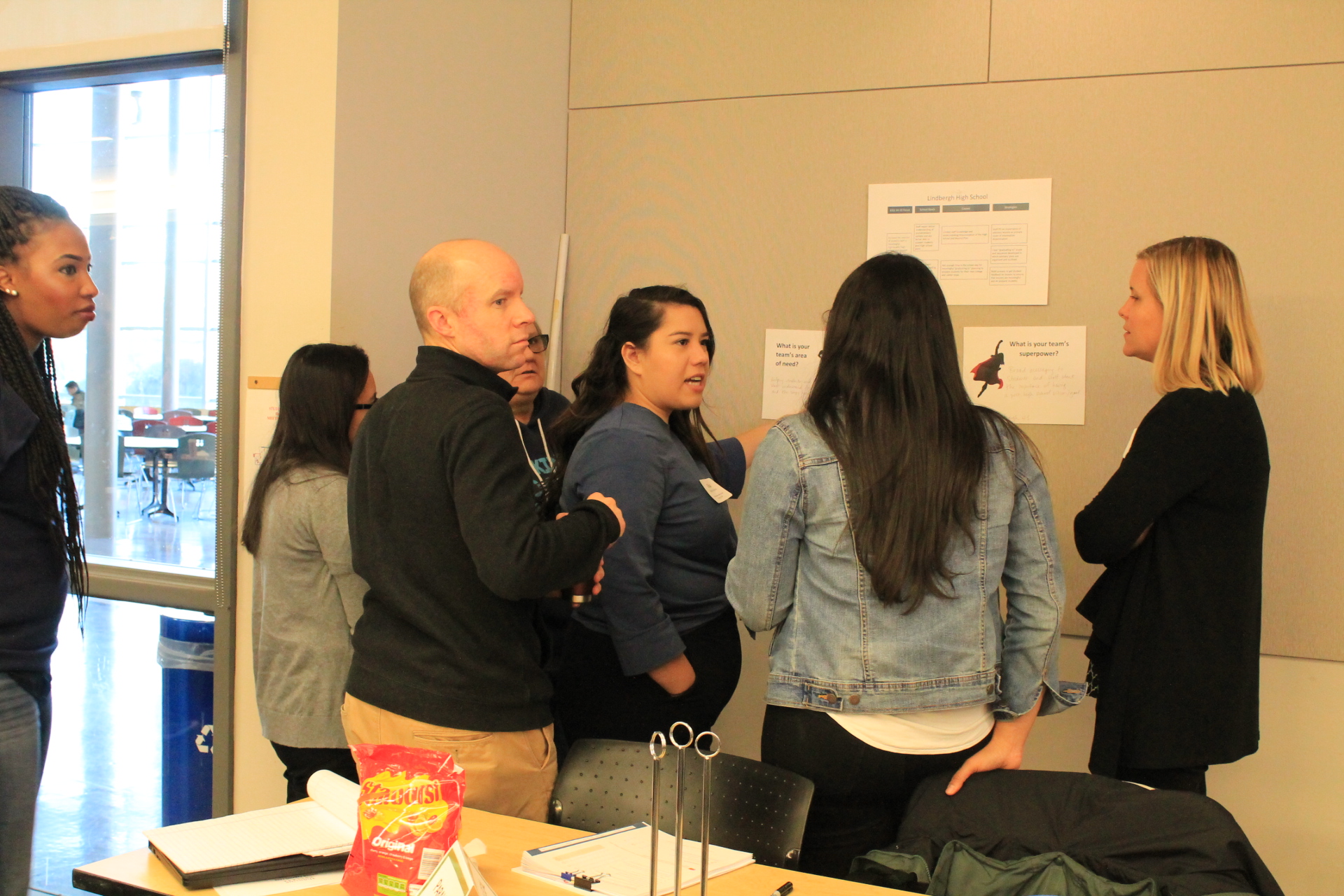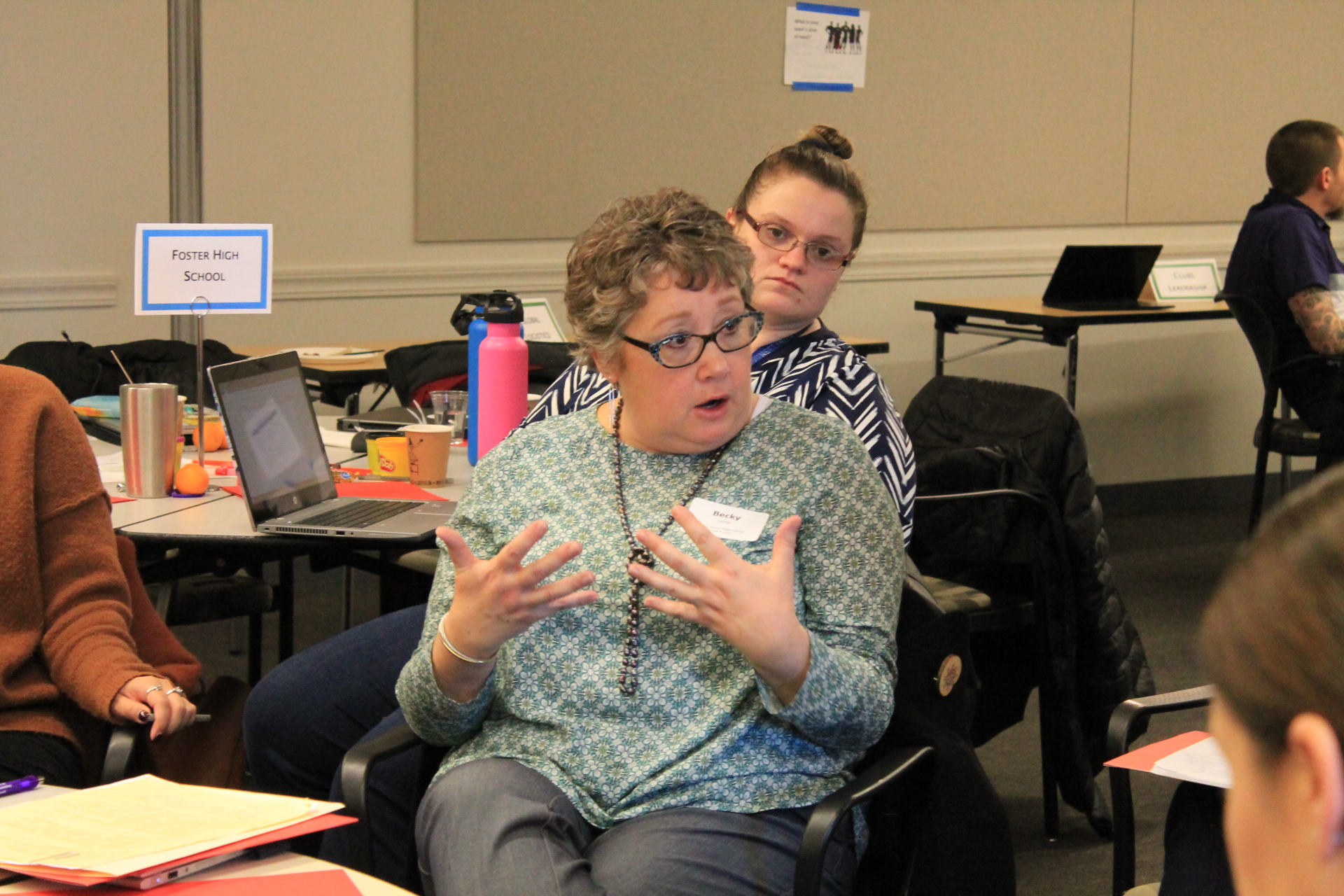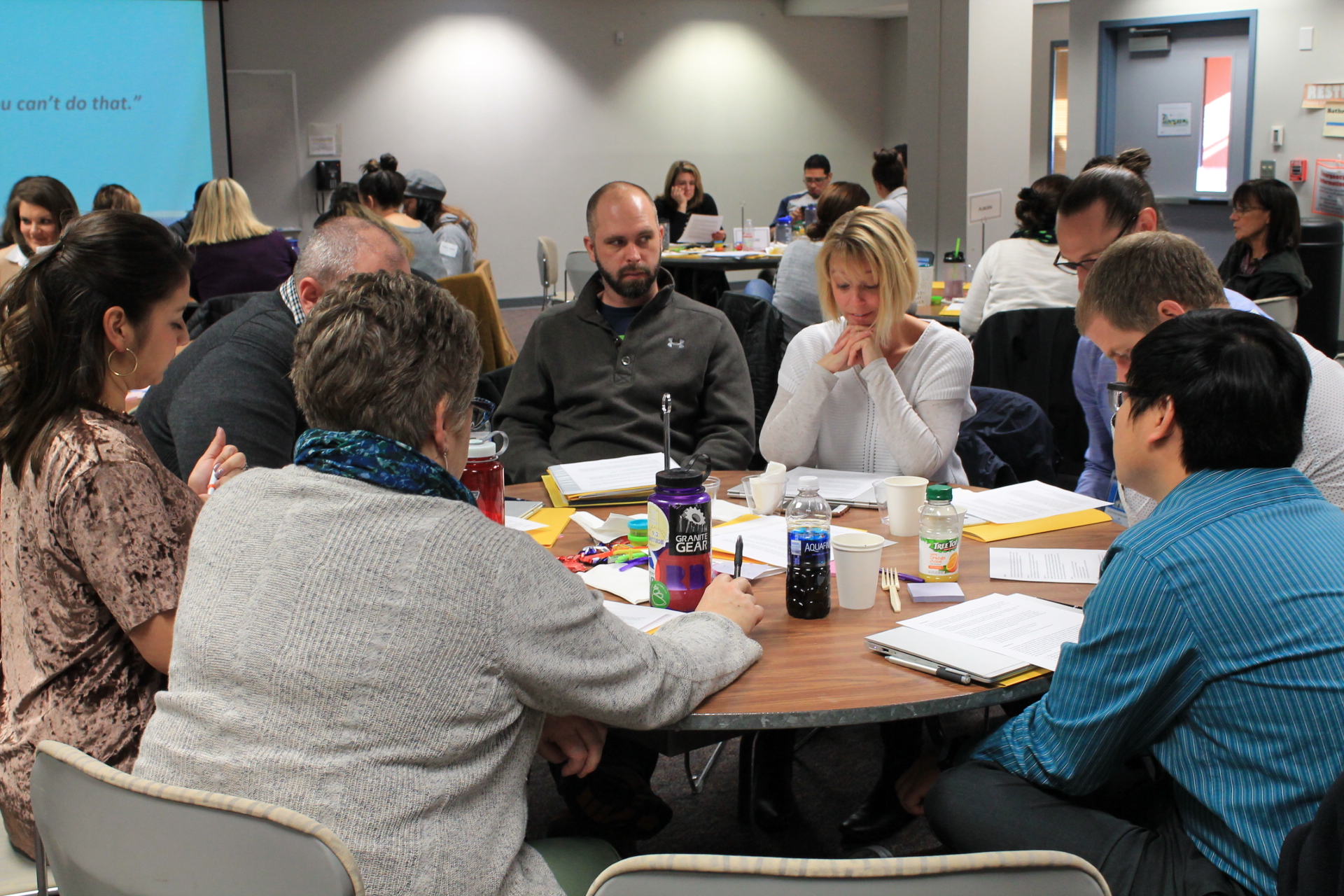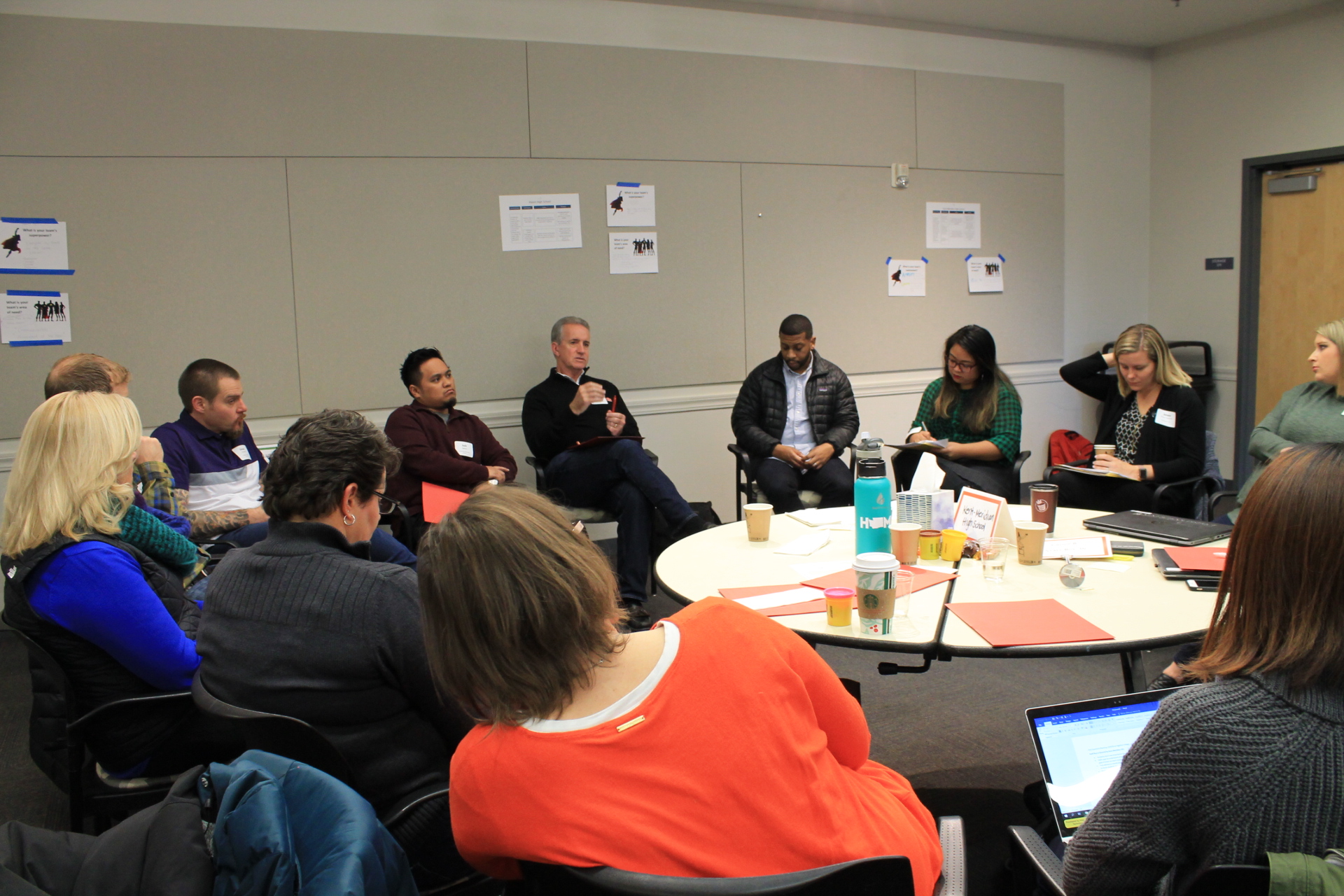
The Kent-Meridian team reading about another team's successes and challenges during a walking activity at the Dec. 2018 CCLI workshop.

Becky Lamb of the Hazen High School team shares her insights at the Dec. 2018 CCLI workshop.

The Hazen High School team at the Dec. 2017 CCLI workshop.

School staff having a circle discussion at the Dec. 2018 CCLI workshop.
Circled in a Highline College classroom in December, over 80 staff members from 11 different high schools spanning seven districts shared their schools’ greatest challenges when it comes to getting students college and career ready, and their strategies to overcome them. They had been in rooms together for two years already, as the first cohort of the College and Career Leadership Institute (CCLI), a professional learning community of Road Map Project high schools. They hoped to stop struggling alone and reinventing the wheel—and start working intentionally to improve supports for their students.
“I think that what makes CCLI unique is the cohort model,” said Alejandra Pérez, a CCLI organizer. “Even though each school is working on slightly different things, it is all going toward the same goal. We noticed that schools are having the same problems: a lack of staff buy-in, not having a strong advisory, and so on. By convening them, they can get ideas from each other on how to improve on similar challenges.”
Last fall, the team from Renton School District’s Hazen High School reached out to the team from Kent School District’s Kent-Meridian High School. Hazen had heard about Kent-Meridian’s work, checked out their website, and became interested in learning more. The Kent-Meridian team invited two members of the Hazen team—career and technical education teacher Jonathan Clark and dean of students Becky Lamb—to visit their school.
“Jonathan and Becky got to observe one of our college access team meetings,” said Elisa Aguayo, Kent-Meridian’s student achievement specialist and the school’s CCLI team lead. “That was really cool, that other teams wanted to learn from our work.”
One difference between the two schools, Becky and Jonathan observed, is that Kent-Meridian uses an online platform that helps students align their strengths and interests to their college and career goals. These platforms, such as Naviance, MaiaLearning, and Career Cruising, house student plans and allow school staff to provide customized support.
“We don’t have a system like that at all,” said Becky. “In my role, I do a lot of discipline and attendance—and that means understanding who students are and building relationships with them holistically. But I can’t just pull something up and see what their plan is for after high school. If we had a platform that could do that, we’d be able to support students’ individual needs much better.”
The Hazen team also wanted to know how Kent-Meridian runs advisory, how they support students in signing up for Federal Student Aid Identifications, and how they set up family support sessions for completing the Free Application for Federal Student Aid (FAFSA) and the Washington Application for State Financial Aid (WASFA).
Kent-Meridian staff said that the visit was equally valuable to them. “When Hazen came to visit us, we were definitely on equal ground,” said Zack Lenihan, a language arts teacher and High School and Beyond Plan coordinator at Kent-Meridian. “They said they had a lot they wanted to learn from us, but during the course of our meeting, we also started talking to them about things that they were doing and we weren’t.”
Zack was especially inspired by a mock job interview day that Hazen had set up for their entire junior class. The Kent-Meridian team thought about how the event could be a way to support students through multiple steps in a career-searching process. They started thinking about ways to use advisory time to teach resume writing, interviewing, and other skills in preparation for a mock job interview event. “I feel like it was mutually rewarding,” said Zack. “CCLI has given me lots of opportunities to learn best practices from other schools and then to try and incorporate those best practices into what we’re doing here.”
After Hazen’s site visit to Kent-Meridian, Becky and Jonathan also attended Kent-Meridian’s college admissions event with Central Washington University. “They wanted to see our team in action,” said Elisa. “It was an example of how we can work together to provide opportunities, remove barriers, and celebrate our students. Our college prep advisor was the lead, and we all came together to support it. Becky and Jonathan were able to see that. I felt proud of our team, that we were recognized by other educators who found value in what we’re doing.”
“If a school sees a step that another school took, that one small step can allow us to move forward with the work of improving school college and career supports,” said Alejandra, who is the college and career success manager at the Community Center for Education Results.
Within schools, there are many dedicated individuals doing meaningful work to support students, but what has been lacking is larger-scale alignment and connection. This component of CCLI—collective planning towards collective action—has built greater capacity for collaboration across schools and districts.
This story is the second in a series about the College and Career Leadership Institute. Read the first post “How educators can shape college and career readiness strategies together.” and the third post “Going straight to the source: Student feedback drives improvements in college and career supports.”
Posted in: College and Career Readiness , College and Career Success